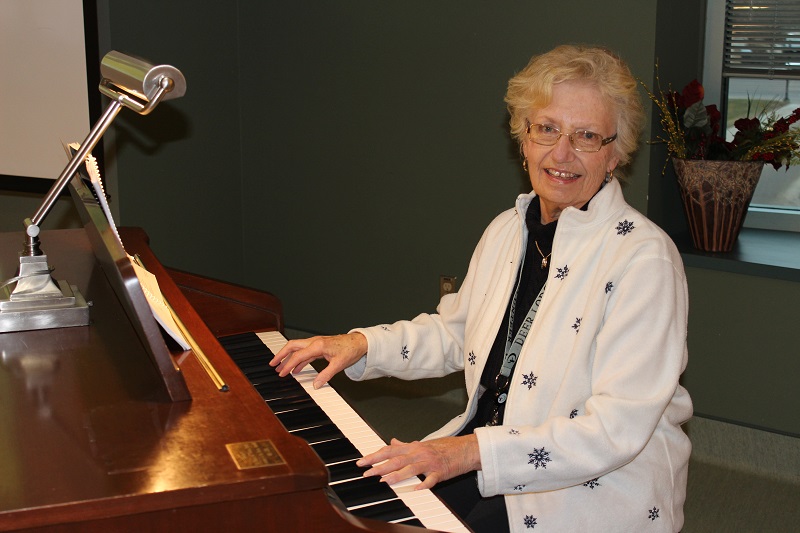
By Mike Badejo
You don’t think it can happen to you. You know the warning signs. You’re smart, strong and independent. But the truth is, with the aging of our population, elder abuse is spreading. It can take many forms. It can impact not only the victim, but their friends, family and caregivers.
Of the more than 160,000 Manitobans aged 55 or older, four to ten per cent will experience elder abuse at some point in their later years. As an umbrella term, elder abuse describes any activity that involves harming or taking advantage of an older individual – and includes everything from psychological and physical abuse, to neglect, to sexual or financial abuse. It can happen at home, in the community, and in hospital or care facilities. One of the darkest sides of elder abuse is that it is usually committed by someone the victim trusts or depends on.
It can be prevented, and it can be stopped.
What Elder Abuse Looks Like
Elder abuse is not always easy to spot. Signs of physical abuse include bruises, cuts, burns, swellings and scratches. These signs often won’t fit with the victim’s explanation of the injury, or with the victim’s medical history.
Psychological or emotional abuse often results in withdrawal, edginess and agitation, and fear of being left alone with the abuser, who may exclude the victim from discussions and major decisions, and restrict access to the phone, food, other family members and service providers. Pay attention to changes of demeanour (no eye contact, fear of being talkative) over time – especially in the presence of a specific person. Watch for signs of neglect, including malnourishment or health problems that worsen but could be easily treated.
Signs of financial abuse include missing possessions, unusual bank account activity, a lack of money to pay for bills and necessities. The victim will sometimes let slip that they’ve been forced to change their will or sell their house. Financial abuse includes email or phone scams where the victim is lured into sharing account information under false pretences. Technology has made it easier than ever for us to connect – and opened up countless new avenues to exploit even the savviest of users. As more older adults adopt email and access the internet, more are falling prey to online scams. One example is the recent rash of calls from an exploiter posing as the Canada Revenue Agency and asking for personal information such as a social insurance, credit card, bank account and passport numbers.
There are even cases of home improvement fraud where a service is offered, vendors are given a cheque, and then the work is never completed.
Together, psychological and financial abuse make up approximately 95% of reported cases of elder abuse. It doesn’t help that new types of fraud are being invented daily.
Preventing Elder Abuse
Abuse often combines motive and opportunity, and offers a way for the abuser to rationalize it (“I’d use these funds better than they can – they’re elderly anyway”). Proving abuse has taken place and building a case against the perpetrator can be challenging because the victim may be affected by cognitive impairments such as poor memory.
That’s why prevention is so important.
Here are a number of actions you can take to limit the likelihood of elder abuse affecting you or a loved one:
- Check banking and financial statements for irregularities. If you can, it’s always a good idea to stay aware of what’s happening in your account. Keeping separate records of your expenses can make them easier to verify.
- Don’t give away your PIN/password. If you need help retrieving funds for an item, accompany the helper to the bank or store so you can enter your PIN there yourself.
- Keep a wide social circle. Abusers tend to socially isolate their victims, which can make you feel like you have no options for recourse and no one to trust. Having a large support system and social network will make sure you have lots of friends keeping their eyes on you!
- Ensure your needs are being met. Don’t let your abuser keep you from health appointments, or from obtaining basic necessities such as new shoes when old ones are worn.
- See something? Say something! If someone keeps prying for your financial information or power of attorney, or generally makes you feel uncomfortable, talk to another friend or trusted person about it. You may be on to something.
What To Do if You Suspect Elder Abuse
If you think someone you know is being abused and is in immediate danger, call 911. If you’re concerned but the situation doesn’t present an emergency, talk to the person – ask how they’re doing – and ask how they’d like you to help.
- Don’t judge. Listen to what they tell you, let them know you care, and offer support.
- Educate yourself. Explore the resources available to older persons who are being abused.
- Don’t deny what’s going on. That will only isolate the victim further.
- Don’t confront the perpetrator yourself. This could put you and the victim in immediate danger.
An End to Elder Abuse?
The first step to solving a problem is acknowledging it exists, and increasing awareness about elder abuse is opening eyes. Compared to a decade ago, elder abuse is now front and centre in the news. Campaigns like World Elder Abuse Awareness Day (June 15) are ensuring that the dangers and prevention strategies are top of mind. Helping people come to realize they may have been a victim is key to solving the problem of elder abuse. Even today, only one in five cases of elder abuse is reported.
Victims may not initially come forward because they’re ashamed. They might fear being labeled as dim-witted or deserving of the abuse. To combat this fear, we need to help victims know they’re not alone – and that they have an entire community standing together behind them.
For more information, visit WEAADManitoba.ca
Where to call for help
The best action you can take to end elder abuse is to be aware of the resources – including experts ready to provide a wide, trustworthy and comfortable support system. Your awareness might even save a life – including your own.
- Seniors Abuse Line: 1-888-896-7183
- Protection for Persons in Care Office: 1-866-440-6366 (204-788-6366 in Winnipeg)
- A & O: Support Services for Older Adults: 204-956-6440
- Law Phone In and Lawyer Referral Service: 1.800.262.8800 (Winnipeg 204.943.2305)
Recent News

Winnipeg Jets Parkinson’s Disease Awareness Game!

Volunteer Profile: Carole Grier

